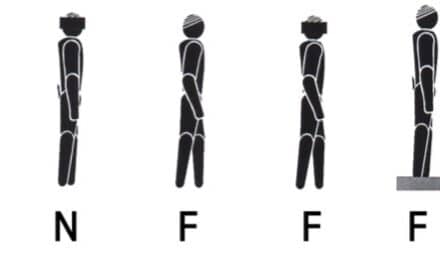Nausea, vertigo, tinnitus, and hearing loss—the symptoms of Ménière’s disease can really throw one off-course.
In the past, treatment of extreme cases of Ménière’s disease included severing the vestibular nerve or surgical removal of the entire vestibular organ. Now, a less invasive treatment can be utilized, with an antibiotic called gentamicin, Karl Landsteiner University of Health Sciences announced on its website. By placing the antibiotic—an known ototoxin—into the middle ear, a side effect of the drug can be used therapeutically, says the university: Gentamicin is said to reduce the excitability of the vestibular cells in a targeted manner. Researchers have now reexamined 32 Austrian treatment cases between 2012 and 2015 and evaluated the results.
“Our evaluations confirm the effectiveness of this simple treatment method,” explained Dr Béla Büki, head of the outpatient department for hearing and balance disorders at the Krems University Hospital of Krems. “In over a third of the cases, only a single injection was necessary to achieve a noticeable and lasting relief of the symptoms.”
The results from Austria thus confirmed other studies in which this treatment method was used therapeutically, according to the school’s announcement. However, in some cases, the initial effect of the treatment subsided after a few months and further injections were necessary to achieve a more lasting effect.
Dr Heinz Jünger was particularly interested in whether details of the initial treatment success could be used to predict the long-term course of symptom relief. The effect of the treatment on the individual parts of the equilibrium organ—including the labyrinth, which consists of three bony archways arranged in a spatially complex distribution to each other—was analyzed.
“In fact, our evaluation showed that the effect of the antibiotic in one channel of the labyrinth correlated strongly with its effect in the other two,” Büki said.
The research team also evaluated data from a measurement method designed to detect human reflex, known as the vestibulo-ocular reflex (VOR). This reflex compensates for rapid head movements with opposite eye movements, stabilizing images on the retinas and allowing people to focus on images even when the head is moving. In disorders of the vestibular system, this reflex is reduced to varying degrees and can be used as a measure of the degree of the disease or the success of treatment. By evaluating these data, it was found that the initial success of the treatment did not indicate whether another injection of the antibiotic would be necessary in a few months, and researchers are utilizing a “wait-and-see” approach.
The detailed analysis of a very simple form of treatment for a rare and complex disease is a notable example of research at KL Krems, which focuses on niche fields in areas relevant to health policy.
Source: Karl Landsteiner University of Health Sciences
Gentamicin May Relieve Ménière's Disease Symptoms, New Study Says






Had two injections two days ago. Very week can only walk short distance and must lay down Very unsteady on my feet. Can’t lift my head up feeling like I will fall over. Forget about fast head movement. I am so miserable plan to see if this works out. My quality of life is gone Don’t plan to put up with this for the long term
I’ve had the vertigo symptoms since 1997. I was diagnosed with Meniere’s disease. Over the years the vertigo and the tinnitus were manageable but I continued to experience hearing loss in my left ear. January 2018 changed everything.Constant vertigo with dizziness, vomiting, no balance got steadily worse. I never knew when it would occur so I was house-bound thru the next few months. I sought help around April with an ENT specialist who told me I was now deaf in my left ear. He prescribed a diaretic. The vertigo continued so he convinced me to have the gentamicin treatment. I was to have 4 treatments one week apart. After the second treatment I had a severe reaction and he stopped the further treatments. To this day I can’t drive my car, walk straight, I have to avoid bright light, loud noise and the noises in my head at times are unbearable. Gentamicin did not work for me.
I also had several injections over the the last eight months. I am happy that it did put an end (so far) to my severe vertigo attacks. I too feel like I’m always having a very mild attack. Driving on rough or winding roads is a problem especially when someone else drives. Walking is not the same….always some balance issues, although I did therapy. My vision is rarely stable. Tinnitus in the left ear still an issue, but knew it would be. Still very happy I do not have any more major debilitating attacks. Not sure if further treatments would help these issues or if labyrinthectomy would be worth considering.
I had this done and it stopped my bad attacks where I lay in bed vomiting into a trashcan. But now I have one constant mild attack. Bad balance, imbalance, differently walking In low light, impossible to walk in complete darkness, can’t drive at night, even riding in a car on twisty road with elevation changes makes me sick, brain fog, and more. It’s not an easy cure all. It’s a trade off.